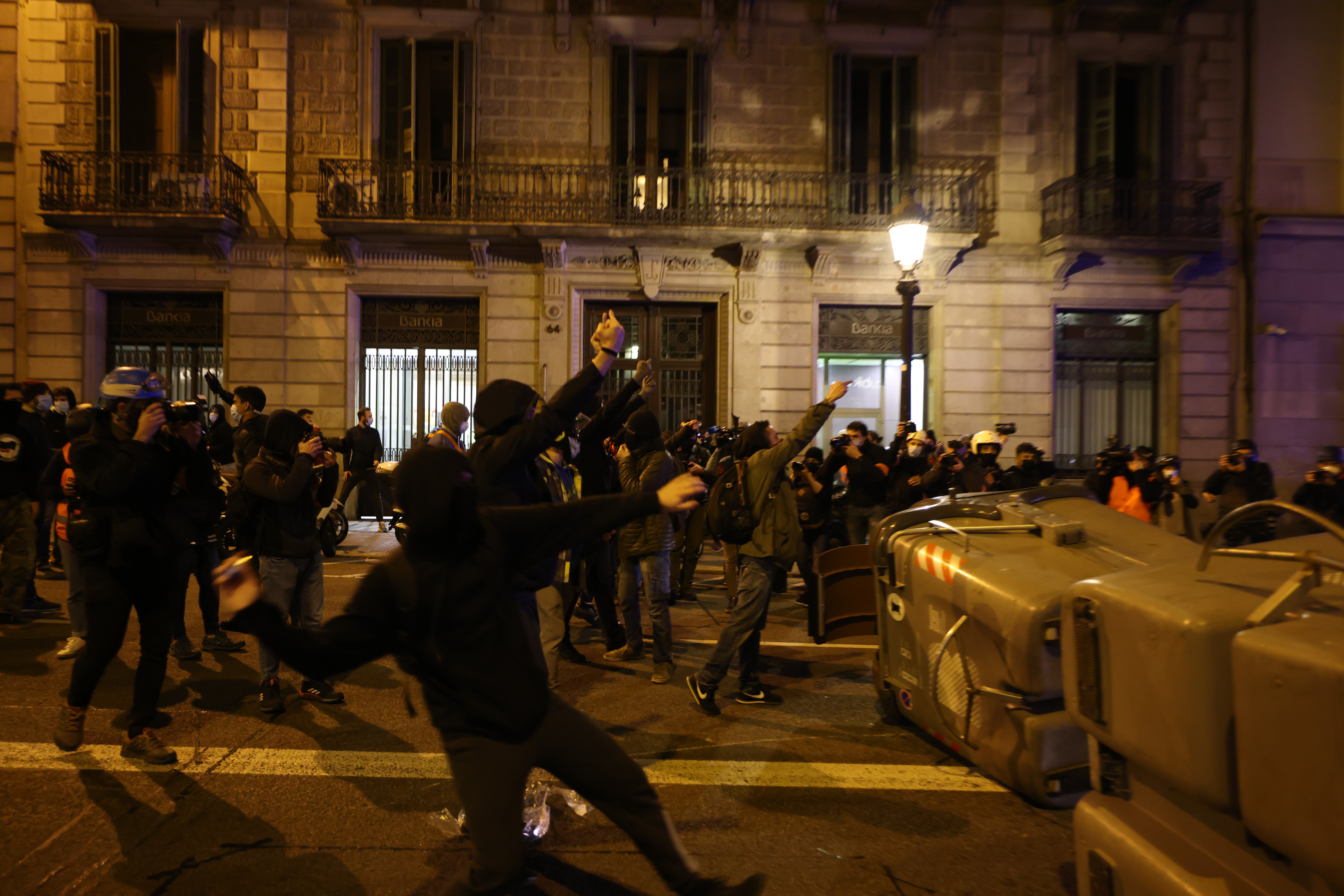A friend of the Barcelona teenager who has lost sight in one eye, allegedly due to the impact of a foam projectile from the Mossos d'Esquadra police, after Tuesday evening's demonstration against the imprisonment of rapper Pablo Hasél, has asserted that young people are motivated to protest because they fear they have no future. Interviewed on the radio programme Aquí Cuní, she did not justify the rioting, but gave some insights into the situation underlying the violent protests in Catalan and Spanish cities which have now erupted for a third successive night.
“We’re not there just because we want to riot,” she said. “Yes, there are a lot of people who take advantage of the demonstrations to loot and be hooligans,” she explained live on the radio programme.
The young woman ended up saying, "But what young people really experience is fear, and all that we do is out of fear, and as a type of self-defence, because all we're looking for is to have a good future and to be free."
‼️ EXCLUSIVA | "Que la gent no pensi que només estem allà per provocar aldarulls. (...) Els joves realment tenim por i estem actuant per por. És una forma d'autodefensa perquè volem ser lliures"
— Aquí, amb Josep Cuní (@AquiCuni) February 18, 2021
👇🔊 Escola el testimoni de l'amiga de la noia que ha perdut l'ull. pic.twitter.com/jJSXipiSLR
Extract of broadcast from Aquí Cuní radio programme (in Catalan)
This morning the general directorate of the Catalan police announced that it was opening an inquiry and had already contacted the victim and put itself at her disposition. It marks a change in the department’s attitude compared to other cases in the past, which the young woman’s lawyer noted and highlighted as “significant”.
The Catalan interior ministry is investigating how a shot was fired with a precision weapon at head height. Irídia, the group which is defending the woman, has explained that three such shots have been detected above waist height, which is anti-regulatory, and in 2019 there were other cases of this, and the group demands that the practice must stop.
On Wednesday, Amnesty International also called for an investigation into the injury of the woman who lost her eye.
The human rights body stresses the need to clarify the circumstances of this incident and determine "the proportionality of the use of riot gear in the different police operations." With regard to foam projectiles, Amnesty International stresses that firing against the lower torso or legs is recommended, and that it cannot be used "indiscriminately against a group of people, but against specific individuals who pose a serious threat."

